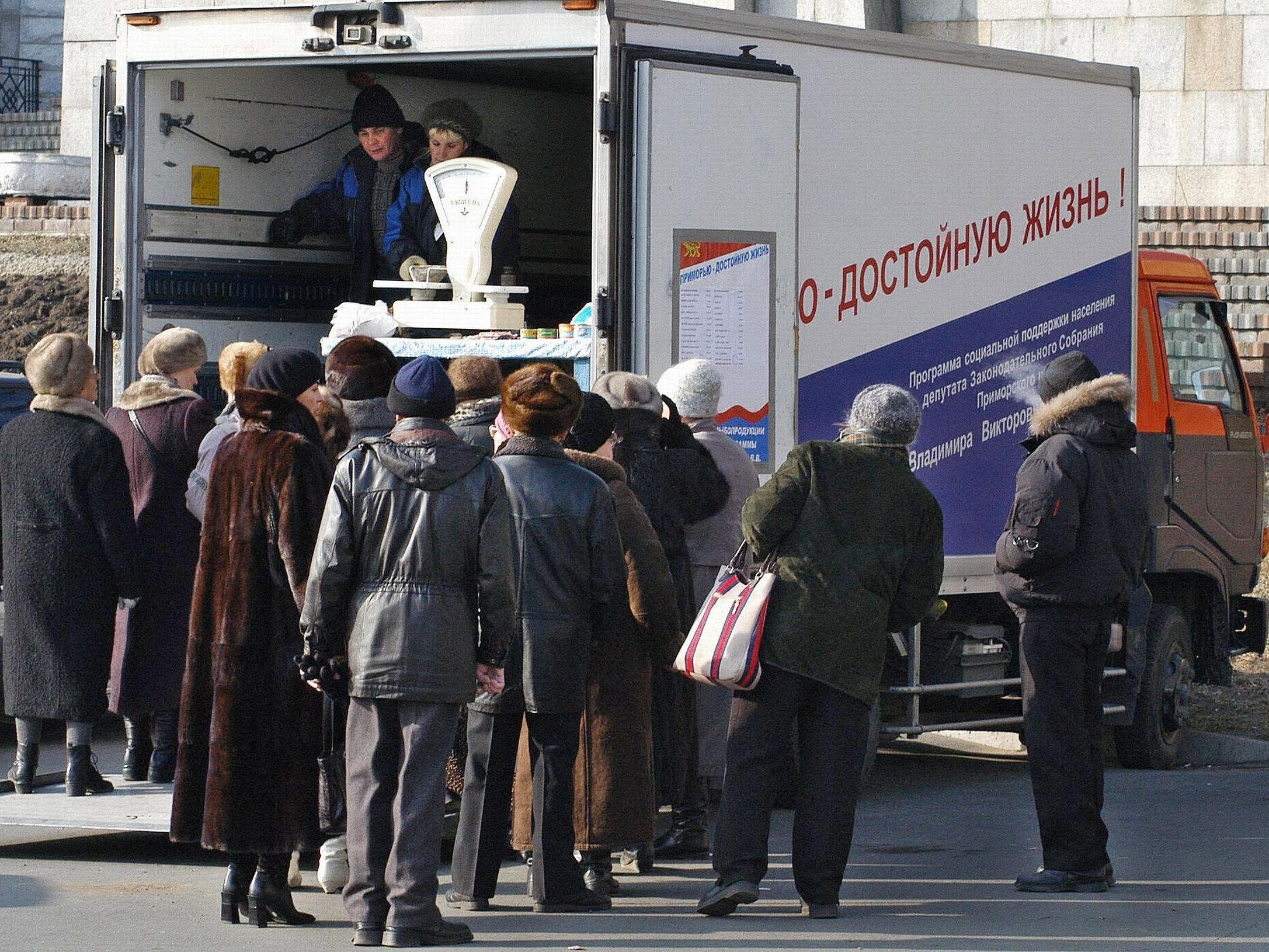Russians told to 'prepare for the worst' as US proposes new sanctions
Russian stock prices dropped 1.5 per cent on the back of news

Your support helps us to tell the story
From reproductive rights to climate change to Big Tech, The Independent is on the ground when the story is developing. Whether it's investigating the financials of Elon Musk's pro-Trump PAC or producing our latest documentary, 'The A Word', which shines a light on the American women fighting for reproductive rights, we know how important it is to parse out the facts from the messaging.
At such a critical moment in US history, we need reporters on the ground. Your donation allows us to keep sending journalists to speak to both sides of the story.
The Independent is trusted by Americans across the entire political spectrum. And unlike many other quality news outlets, we choose not to lock Americans out of our reporting and analysis with paywalls. We believe quality journalism should be available to everyone, paid for by those who can afford it.
Your support makes all the difference.Moscow has reacted to a proposed new package of United States sanctions with of mix of anger and resignation.
As an influential former minister urged Russians to prepare for the worst, the Kremlin accused the US of “racketeering”.
“We see clear symptoms of emotional Russophobia,” Kremlin spokesperson Dmitry Peskov told journalists. “But behind the emotions … is an entirely pragmatic, assertive trade calculation, and … nothing less than an attempt to engage in dishonest competition.”
The new round of sanctions, proposed in the Defending American Security from Kremlin Aggression Act on Wednesday evening, would target Russia’s security service, sovereign debt, and its financial and energy sectors. The sanctions package is awaiting congressional approval.
According to the bill’s authors, the measures have been proposed in response to two developments: Russian “interference in democratic processes abroad” and its “aggression against Ukraine”, including the seizing of Ukrainian warships in the Kerch strait in November.
On Thursday, the proposed sanctions were met with a predictably angry response by Russian state television and more media-hungry parliamentarians. Perhaps the most memorable response was filed by Frants Klintsevich, the prominent, if excitable, member of the Defence and Security Committee of Russia’s upper house. He described the new sanctions as a “dangerous habit” akin to “smoking a pipe before breakfast, poisoning all those around”.
“The sanctions have nothing to do with the Kerch incident,” he added.
Other influential actors offered a more muted response, and called on Russians to prepare for things to deteriorate further.
Herman Gref, the head of Russia’s largest bank and its former reformist economics minister, said the risks to the country’s already slow-growth economy had increased and was already being factored into the market.
“We need to prepare for the very worst of situations,” Mr Gref said.
Russian stock prices dropped 1.5 per cent on the back of the news.
Dmitry Peskov admitted that the Kremlin saw little hope for a turnaround in bilateral relations.
“Understanding the level of feelings in congress, it would be wrong to hope for an improvement or even some remission of the disease of Russophobia,” he said.
Repeating a sentence heard many times over on Wednesday, the presidential spokesperson warned things would get worse – but insisted Russia would find a way of coping.
“Russia’s economy has long lived under one sanction or another,” he said. “We’ve managed to keep macroeconomic stability, and even provide for growth in some areas.”
Join our commenting forum
Join thought-provoking conversations, follow other Independent readers and see their replies
Comments